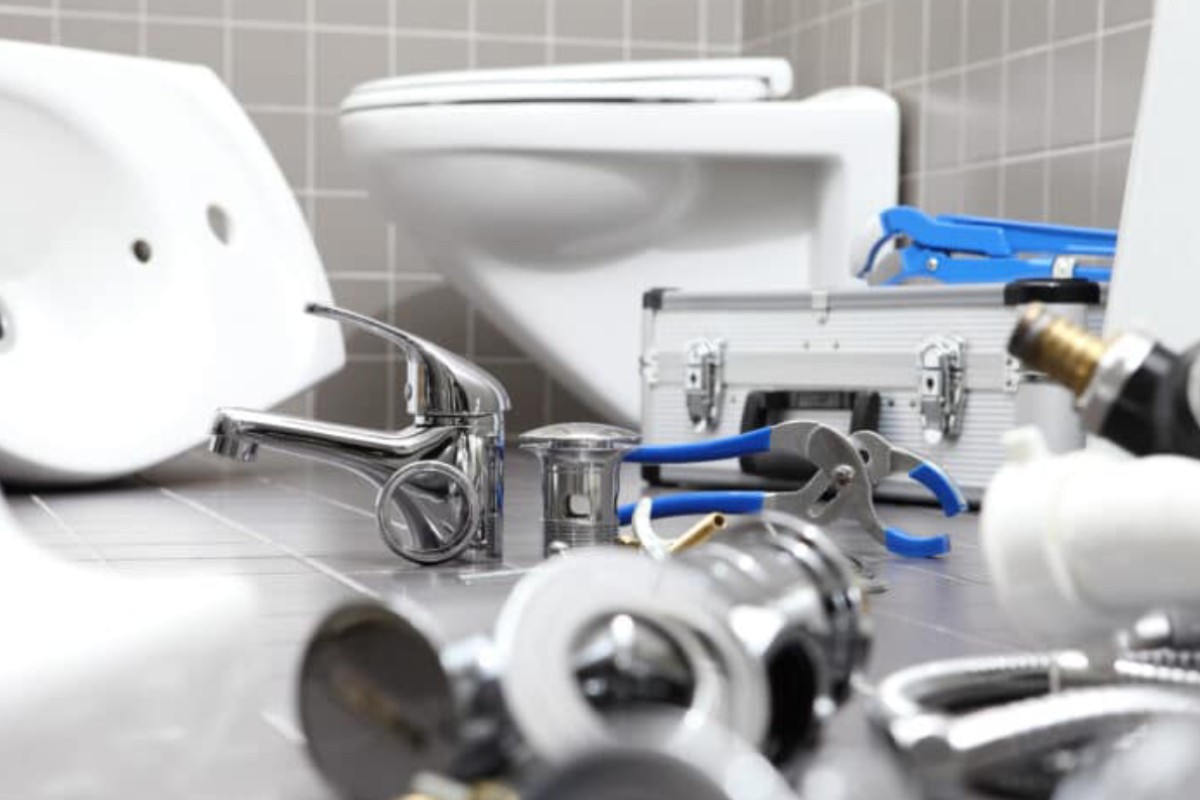Every day, you rely on your water heater. It provides the hot water you need to wash your dishes, bathe and clean your laundry. You can see just how much you depend on your water heater when you get your bill at the end of the month. As a homeowner who is conscious about your energy efficiency, you may wonder how you can lower your monthly bills. Water heater timers may be the solution you’re looking for.
Timers for water heaters help homeowners across the country save money each month, and their benefits might surprise you. Use this guide to understand exactly what hot water heater timers are and how you can use one to experience monthly savings.
What Is a Water Heater Timer?
Hot water heater timers are devices that connect to your water heater to control its usage. You can set them to turn on your water heater when you need hot water and turn it off again during periods of downtime. They’re customizable to your lifestyle to make sure you always have hot water when you need it. Turning off your water heater when you don’t need hot water can save you a sizeable amount of money on your utility bill.
Your water heater is responsible for nearly 12% of your monthly utility bill. That may seem pretty high, but consider your hot water usage. Think of how many loads of laundry you do per month, or how many times you run the dishwasher or hand wash your dishes. Consider the number of showers you take and how long they are. All these activities use gallons of hot water at a time, and your hot water heater has to keep up and continually produce the hot water you need.
The more people that are in your household, the more hot water you will use. It might feel like you’re using hot water all day, but even in the busiest families, there are times of day when no one is using hot water. Many homeowners don’t realize their water heater still uses energy when they’re not showering or doing chores that require hot water. Because of this, it’s not enough to stop using hot water. With a hot water heater timer, you can turn off your water heater completely during times when it is not used. Your water heater will stop trying to keep the water warm in preparation for you to start using it — saving you money.
To fully understand the benefits of water heater timers, you need to know the ways your water heater loses and uses energy during periods of downtime.
What Is Standby Loss in Water Heating?
There are three main types of energy losses your water heater experiences when not in use. These are distribution losses, firing losses and standby losses. While all three can be the culprit that raises your utility bill every month, standby loss can be the easiest to avoid when you have a professional install a hot water heater timer. Here is a breakdown of these types of energy losses:
- Distribution loss: This type of loss occurs after hot water has left the tank. The water travels through pipes to get to its destination, whether that be the shower, the dishwasher or anywhere else in the house. The pipes absorb heat from the water as it passes through, leaving you with water that is cooler than what you’re paying for. Some water heaters circulate hot water through pipes to ensure it is available at all times. This consumes more energy as heat is continuously lost in the pipes.
- Firing loss: Your water heater has to convert a fuel source to generate heat. Fuel sources may be electricity, wood, natural gas or kerosene. If you have a natural gas water heater, the water heater combusts the natural gas to create heat, which warms your water. The act of combustion that your water heater performs consumes energy that isn’t heating your water, costing you money. Electric water heaters usually convert electricity into heat efficiently, but natural gas and kerosene waste energy during combustion.
- Standby loss: This loss occurs when your water heater keeps water hot in the tank at all times. Losses occur through heat conduction. The more surface area of your heater that is in contact with the hot water, the more heat the water will lose. Your water heater’s surface area steals that heat and sends it off into the surrounding air, wasting valuable heat that you pay for. Then the water heater has to combust more energy to make up for the lost heat.
If you determine you won’t need your water heater throughout the day, you can use your water heater timer to shut it off. This can eliminate standby loss, as the heater will turn off instead of keeping the water warm for hours.
Benefits of Water Heater Timers
There are many benefits of water heater timers that may prompt you to invest in one for your water heater. Most of them come down to money and energy efficiency. Any amount you can save on your monthly utility bill is a win for you. The savings may be incremental at first, but they can add up to a sizeable sum. Here are some of the major benefits of water heater timers:
- Eliminate standby loss: With a hot water heater timer, you can turn your water heater off when you don’t need it and turn it on when you do. Wasting energy by keeping your water heater on for hours will be a thing of the past.
- Conserve energy for outdoor water heaters: Outdoor water heaters are more susceptible to standby loss, especially if the weather is cold. If you are in a situation where your water heater must remain outside, a water heater timer can save you more money.
- Avoid premium prices during peak hours: Many energy companies charge more during hours of peak energy consumption in an area. A high percentage of people in an area are using energy during these times, but all families and people are different. If you can set your timer to turn off your water heater during these peak moments, you can save even more money.
Control your energy consumption: Many energy-conscious homeowners want to be as in control of their energy consumption as possible. With a water heater timer, you can take the next step of managing your energy consumption and give yourself more wiggle room in your monthly budget.
Types of Water Heater Timers
There are several types of water heaters that convert different energy sources into heat. Likewise, there are different types of water heater timers. The various water heater timers have unique features, so you should investigate the different types to make sure you know which kind matches your lifestyle.
Electric water heater timers and gas water heater timers come in a variety of options. Keep in mind that these timers are different than traditional on and off switches. These timers require extra planning and action. The following list explains the types of hot water heater timers that are available:
- Countdown: Countdown timers are similar to switches because you have to actively engage them to start heating your water. You’ll set the length of time you want your water heater to stay on, and the timer will count down from there. Once the timer reaches its set time, your water heater will shut off.
- Programmable: Programmable water heater timers are customizable and easy to use. Depending on the timer’s features, you can set it to trigger your water heater at different times for different days. That way, you can tailor it to you and your family’s needs.
- Box or mechanical: These digital timers might be the most common and customizable water heater timers of all. You can set the timer to turn your water heater on or off at specific times of day for each week or even each month. With that level of customization, box timers are perfect for a busy family balancing many individual schedules.
- Smart: Smart timers, also known as Wi-Fi water heater timers, use your phone’s internet connection to control and customize your water heater’s timer. While these timers can be expensive, they offer a level of convenience and customization that many homeowners find worth the price.
Are Water Heater Timers Really Worth It?
The money you could save with a hot water heater timer is the incentive for getting one installed. Your hot water heater could account for nearly 20% of your home energy usage, so any amount you can save is an attractive prospect. In a matter of months, the money saved could pay for the timer and its installation. From there, that’s extra money in your pocket.
You should also consider your lifestyle. How much hot water do you and your family use? Are there clear and consistent times of day when you use hot water? For some families, a water heater timer is a perfect fit and can help save money monthly. For others, it could cause stress when people’s schedules don’t always line up with the timer. Small families or single adults might be able to function well with a simple countdown timer for their hot water heater.
Another factor to consider is the age of your hot water heater. Older water heaters generally consume more energy and are less efficient. Recent water heaters have made great strides in energy efficiency. If you have an old water heater, the savings you experience from a timer might be minimal. If you have a new hot water heater, a timer can provide its maximum benefits.
Water heater timers prove their worth during peak energy hours. These are the hours when energy companies charge a premium for their services. Even if you’re not using hot water, the standby loss of your water heater will cost you more during these times. Using a water heater timer to disengage your water heater during these hours can save you a lot of money over time.
Other Tips for Increasing Energy Efficiency and Lowering Hot Water Bills
There are plenty of actions you can take to reduce your hot water consumption and make sure you’re getting the most for your hard-earned money. With the help of a professional like Dick Ray Master Plumber, you can get your new water heater timer installed and maximize its savings with the following energy efficiency tips:
- Take shorter showers: Less time in the shower translates to less hot water generation. If you’re a fan of baths, try taking more showers instead, as this can save even more money.
Lower your hot water heater’s temperature: Water heaters are typically set to 140 degrees Fahrenheit. Lower your heater 130 or 120 degrees to save nearly $400 per year on heating costs. - Use more cold water: Use cold water when washing dishes or doing laundry to give your hot water heater a break.
- Minimize water waste: It’s easy to get in the habit of letting the water run when you’re brushing your teeth or doing dishes. This can waste gallons of water over the course of a week. Be mindful of this to save on your energy bill.
- Add insulation to your water heater storage tank and pipes: Ask a professional to apply insulation to these structures to keep the heat where you want it — in your water.
- Fix leaks: If your hot water heater is leaking, you could be wasting hundreds of gallons of hot water every month. Every drip leads to wasted money. We at Dick Ray Master Plumber can fix your water heater’s leaks to help you save this water and money.
- Get a new hot water heater: Old water heaters are notorious for wasting energy and heat. We at Dick Ray Master Plumber can inspect your water heater to see if it is in need of repair or replacement.
Contact Dick Ray Master Plumber for Water Heater Solutions and Service
Dick Ray Master Plumber has been in business since Dick Ray began back in 1949. Now, Dick Ray II carries on the business with a reputation for friendly, reliable service. Since our humble beginnings, Dick Ray Master Plumber is now one of the most trusted names for plumbing in the Kansas City area.
If you’re ready to start saving money on your utility bill, get in touch and we can install your new hot water heater timer. Contact Dick Ray Master Plumber today or schedule an appointment online.





